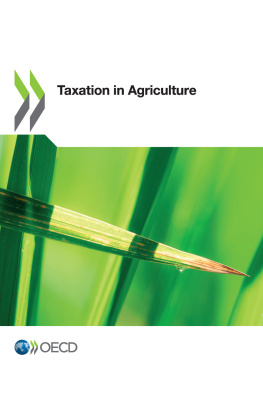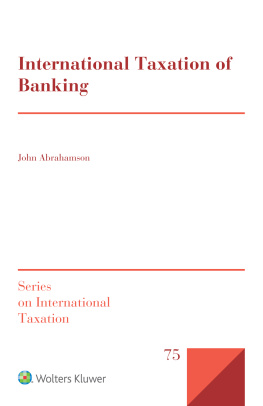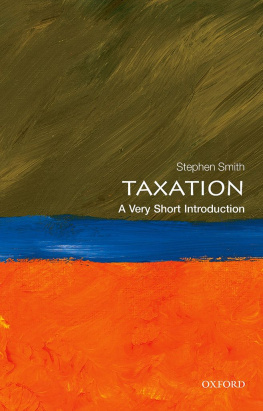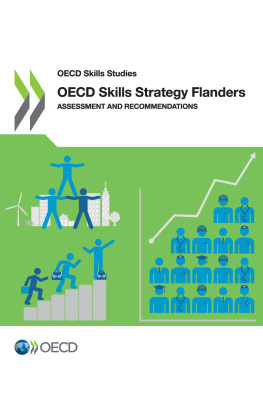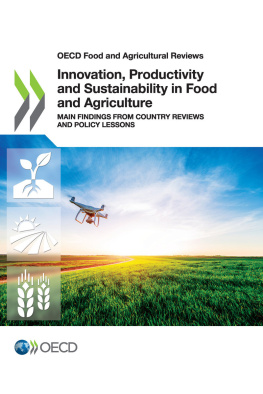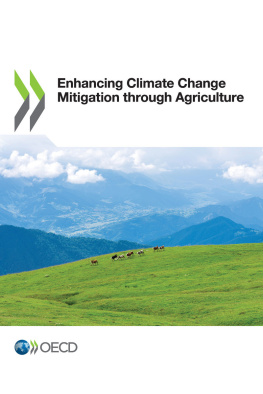OECD - Taxation in Agriculture
Here you can read online OECD - Taxation in Agriculture full text of the book (entire story) in english for free. Download pdf and epub, get meaning, cover and reviews about this ebook. year: 2020, publisher: OECD Publishing, genre: Politics. Description of the work, (preface) as well as reviews are available. Best literature library LitArk.com created for fans of good reading and offers a wide selection of genres:
Romance novel
Science fiction
Adventure
Detective
Science
History
Home and family
Prose
Art
Politics
Computer
Non-fiction
Religion
Business
Children
Humor
Choose a favorite category and find really read worthwhile books. Enjoy immersion in the world of imagination, feel the emotions of the characters or learn something new for yourself, make an fascinating discovery.
Taxation in Agriculture: summary, description and annotation
We offer to read an annotation, description, summary or preface (depends on what the author of the book "Taxation in Agriculture" wrote himself). If you haven't found the necessary information about the book — write in the comments, we will try to find it.
OECD: author's other books
Who wrote Taxation in Agriculture? Find out the surname, the name of the author of the book and a list of all author's works by series.
Taxation in Agriculture — read online for free the complete book (whole text) full work
Below is the text of the book, divided by pages. System saving the place of the last page read, allows you to conveniently read the book "Taxation in Agriculture" online for free, without having to search again every time where you left off. Put a bookmark, and you can go to the page where you finished reading at any time.
Font size:
Interval:
Bookmark:
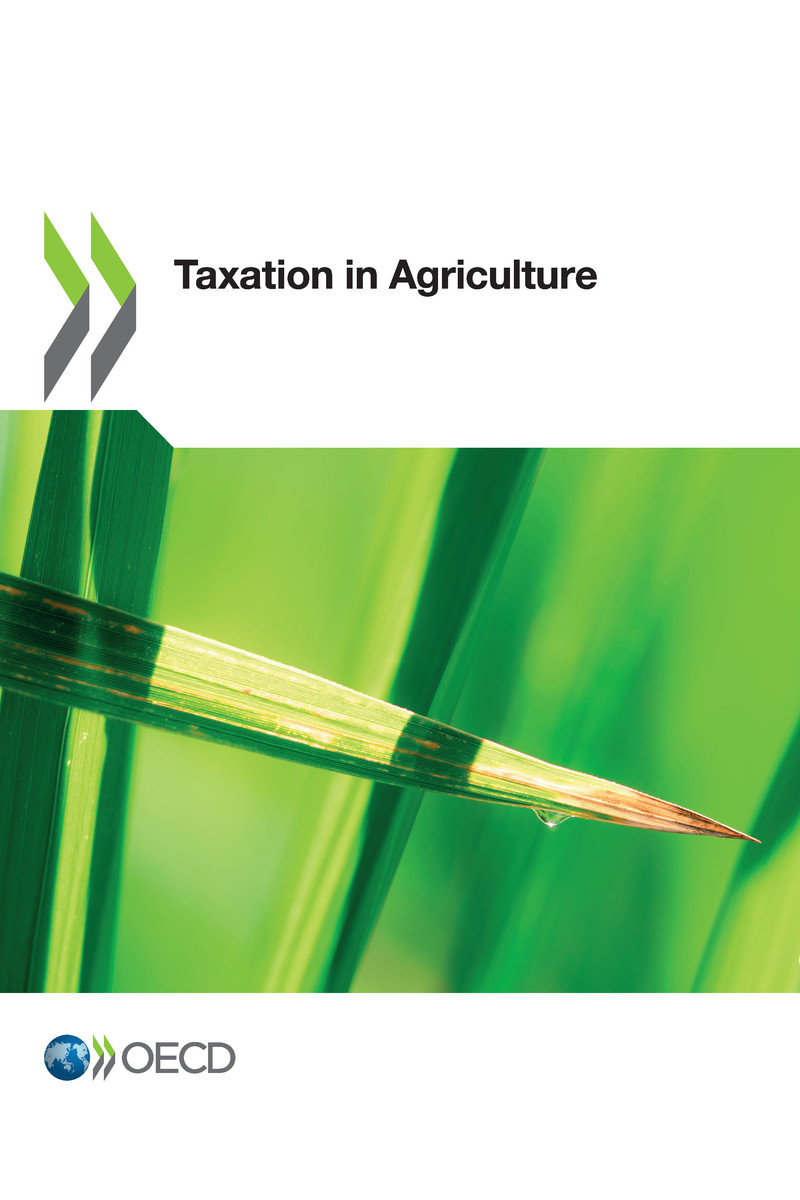
OECD (2020), Taxation in Agriculture , OECD Publishing, Paris, https://doi.org/10.1787/073bdf99-en .
The information in this document with reference to Cyprus relates to the southern part of the Island. There is no single authority representing both Turkish and Greek Cypriot people on the Island. Turkey recognises the Turkish Republic of Northern Cyprus (TRNC). Until a lasting and equitable solution is found within the context of the United Nations, Turkey shall preserve its position concerning the Cyprus issue.
The Republic of Cyprus is recognised by all members of the United Nations with the exception of Turkey. The information in this document relates to the area under the effective control of the Government of the Republic of Cyprus.
Tax policy can affect innovation, productivity and sustainability in the food and agriculture sector through numerous pathways. In general, tax policy affects the decisions of firms and households to save or invest in physical and human capital, with implications for the adoption of innovation. In particular, tax policy influences the conduct, structure and behaviour of farms, input suppliers and food companies. For example, tax systems in some countries can incentivise farm investments by reducing taxable income through provisions for depreciation. In other countries, the tax system allows farmers to smooth income variations over time by using tax averaging. Taxes on income, property and land, and capital transfer may affect structural change, while differential tax rates on specific polluting activities, resources, or input use may affect sustainability. At both the sectoral and the economy-wide levels, the tax system can also be used to provide direct incentives for innovation for example, preferential tax treatment can be applied to investments in private R&D or to young, innovative companies.
This report is a first step in investigating how tax policy influences farm productivity and sustainability performance via its impact on innovation, structural change, natural resource use, and climate change. It builds on previous OECD work which identified and described various types of differential treatment related to the taxation of agricultural activities and assets in OECD countries, analysed the extent to which different provisions could be considered as tax concessions generating benefits relative to other sectors of the economy, and which developed a typology of tax types. The present report explores several concepts in greater depth, including the notion of foregone revenue (or tax expenditures). It provides the latest available information on taxation and tax concessions in agriculture, extending country coverage to consider differences in general tax levels across countries, and reviews the available evidence on the impact of taxation on agriculture. Finally, coverage is extended to countries which have joined the OECD since the 2005 report, and to several emerging economies.
Part I contains a review of the literature on the impact of taxation on income levels and variability, farm transfers and structural adjustment, and investment and innovation in agriculture, and on the performance of tax instruments for improving environmental sustainability. It also compares various tax provisions across countries, outlining concessions applied to agriculture. The concluding section outlines the diversity of tax provisions and suggests areas for further investigation on their policy effectiveness. Part II contains 35 country notes based on information acquired either through country responses to a questionnaire (Annex A.A.1) or sourced from country reviews on innovation, sustainability and productivity in food and agriculture.
This report was prepared by Elena Avery, Katherine Baldwin, and Catherine Moreddu, with early contributions from Joanna Ilicic-Komorowska. It benefited from government responses to a questionnaire, which formed the basis of the country notes, and from comments by colleagues in the Trade and Agriculture Directorate as well as country delegates to the Working Party on Agricultural Policies and Markets. The report also draws on information and expertise on general taxation available at the OECD. Martina Abderrahmane provided editorial assistance and Michle Patterson prepared the publication.
This report was declassified by the Working Party on Agricultural Policies and Markets in December 2019.
Tax policy affects agricultural competitiveness through its impact on farm income levels and variability, investment in land and technology, labour and other input use, and the adoption of farm practices. For example, tax systems can incentivise farm investments by reducing taxable income through provisions for depreciation. In some countries, the tax system allows farmers to smooth income variations over time by using tax averaging. Taxes on income, property and land, and capital transfer may affect structural change, while differential tax rates on specific polluting activities, resources, or input use may affect sustainability.
This new review of taxation in agriculture in 35 OECD countries and emerging economies outlines the diversity of tax provisions affecting agriculture, provides an overview of cross-country differences in tax policy, and confirms the widespread use of tax concessions specifically for agriculture, although their importance and modalities differ across tax areas and countries. Common concessions include exempting small farmers from paying taxes, allowing cash-based accounting, providing estimates of taxable income thereby eliminating the need to keep accounts, reducing annual land and property taxes, reducing the taxes associated with the transfer of land between generations, exempting farmers from being registered for value added taxes and providing tax concessions for fuel used in agricultural production.
These concessions were often established long ago and have not since been revisited. Some countries have, however, increased agricultural tax concessions, often in response to the deterioration of the economic situation of farm households, while others have simplified the taxation systems to limit concessions to agricultural land and basic food products. Additionally, some countries have made changes to tax system provisions in order to help smooth income variability. Finally, the use of taxation to improve environmental performance has become more widespread, as has the reliance on tax rebates to support R&D investment.
Font size:
Interval:
Bookmark:
Similar books «Taxation in Agriculture»
Look at similar books to Taxation in Agriculture. We have selected literature similar in name and meaning in the hope of providing readers with more options to find new, interesting, not yet read works.
Discussion, reviews of the book Taxation in Agriculture and just readers' own opinions. Leave your comments, write what you think about the work, its meaning or the main characters. Specify what exactly you liked and what you didn't like, and why you think so.

